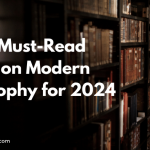Table of Contents
- Introduction
- 1. “The Prince” by Niccolò Machiavelli
- 2. “The Praise of Folly” by Desiderius Erasmus
- 3. “Utopia” by Thomas More
- 4. “The Discourses” by Niccolò Machiavelli
- 5. “Meditations on First Philosophy” by René Descartes
- 6. “On the Dignity of Man” by Giovanni Pico della Mirandola
- 7. “The Advancement of Learning” by Francis Bacon
- Conclusion
- FAQs
Introduction
The Renaissance was a period of profound cultural, artistic, and intellectual rebirth in Europe, spanning roughly from the 14th to the 17th century. During this time, philosophy experienced a remarkable transformation. Thinkers began to challenge medieval scholasticism, emphasizing humanism, empirical observation, and the value of individual experience. In this blog post, we’ll explore seven influential books on Renaissance philosophy that not only shaped the era but continue to resonate with readers today.
“Renaissance philosophy is not just a relic of the past; it is a living dialogue that continues to inform our understanding of humanity.”
1. The Prince by Niccolò Machiavelli
Niccolò Machiavelli’s The Prince, written in 1513, is often regarded as the first modern treatise on political philosophy. It diverges from the idealistic views of governance prevalent in earlier works, presenting a pragmatic approach to ruling. Machiavelli famously argued that “the ends justify the means,” advocating for a ruler’s need to be shrewd, cunning, and sometimes ruthless.
Key Concepts:
- Realpolitik: The idea that politics should be based on practical and material factors rather than moral or ideological considerations.
- Virtù: A term that encapsulates a ruler’s ability to adapt to changing circumstances, embodying qualities such as strength, cunning, and decisiveness.
“The Prince” challenges us to think critically about power and morality in leadership, making it essential reading for anyone interested in political philosophy.
The Prince is essential reading for anyone interested in political philosophy and the complexities of human behavior in leadership. You can find an annotated version of this book here.
2. The Praise of Folly by Desiderius Erasmus
Published in 1509, The Praise of Folly is a satirical work that critiques the corruption of the Church and the follies of society. Written in the guise of a speech by Folly herself, Erasmus employs humor and irony to expose the irrationalities of human behavior.
Key Concepts:
- Humanism: Emphasizing the value of human beings and their potential for rational thought and ethical living.
- Critique of Scholasticism: Erasmus challenges the overly complex philosophical arguments of his time.
“Erasmus’s wit shines brightly in ‘The Praise of Folly,’ inviting readers to reflect on the absurdities of life and society.”
Erasmus’s witty prose and sharp observations make this book a delightful yet profound read. You can access The Praise of Folly here.
3. Utopia by Thomas More
Written in 1516, Thomas More’s Utopia presents an idealized society on an imaginary island, exploring themes of justice, political structure, and societal norms. More critiques contemporary European society, envisioning a communal and egalitarian model.
Key Concepts:
- Social Critique: More addresses issues like wealth inequality and the consequences of greed.
- Philosophical Idealism: The book serves as a blueprint for how societies could be structured for the greater good.
“More’s ‘Utopia’ serves as both a critique of contemporary society and a vision for a better future, making it a timeless read.”
Utopia remains a significant work in discussions of political philosophy and social justice. Access it here.
4. The Discourses by Niccolò Machiavelli
In The Discourses, written between 1517 and 1518, Machiavelli expands on his ideas from The Prince, advocating for republicanism. He draws lessons from ancient Rome, emphasizing the importance of civic virtue and the role of citizens in governance.
Key Concepts:
- Republicanism: The belief in a government where power resides in elected individuals.
- Civic Responsibility: The idea that citizens should actively participate in political life.
“Machiavelli’s ‘The Discourses’ presents a more democratic vision of governance, contrasting sharply with the authoritarianism of ‘The Prince.’
This work provides a counterpoint to the more authoritarian views in The Prince. You can find The Discourses here.
5. Meditations on First Philosophy by René Descartes
René Descartes’ Meditations on First Philosophy, published in 1641, is a foundational text in modern philosophy. Descartes explores the nature of existence, knowledge, and doubt, famously concluding with “Cogito, ergo sum” (“I think, therefore I am”).
Key Concepts:
- Skepticism: Descartes questions everything he knows to arrive at undeniable truths.
- Dualism: The distinction between mind and body, which has influenced modern philosophy and psychology.
“Descartes’ meditations push readers to grapple with the nature of reality and their own existence, marking a pivotal moment in philosophical thought.”
Descartes’ work is essential for understanding the shift towards modern philosophical inquiry. Access it here.
6. On the Dignity of Man by Giovanni Pico della Mirandola
Written in 1486, On the Dignity of Man is often called the “Manifesto of the Renaissance.” Pico argues for the unique position of humans in the universe, endowed with free will and the potential for greatness.
Key Concepts:
- Human Potential: Emphasizing that individuals can shape their own destinies.
- Syncretism: The blending of various philosophical traditions, including Neoplatonism and Aristotelianism.
“Pico’s work eloquently celebrates human potential and dignity, making it a cornerstone of Renaissance humanism.”
Pico’s work champions humanism and remains a key text in discussions of human rights and dignity. You can read it here.
7. The Advancement of Learning by Francis Bacon
In The Advancement of Learning, published in 1605, Francis Bacon lays the groundwork for the scientific method and empiricism. Bacon argues for a systematic approach to acquiring knowledge through observation and experimentation.
Key Concepts:
- Empiricism: The belief that knowledge comes primarily from sensory experience.
- Scientific Method: Bacon’s advocacy for systematic experimentation has profoundly influenced modern science.
“Bacon’s insights into the scientific method represent a monumental shift in how we pursue knowledge, paving the way for modern science.”
Bacon’s work is crucial for understanding the transition from medieval to modern science. Access it here.
Conclusion
The Renaissance was a transformative period that gave birth to numerous philosophical ideas that still resonate today. The works mentioned above not only reflect the thoughts of their time but also laid the groundwork for modern philosophy, ethics, and political theory. Whether you’re a student, a scholar, or simply a curious reader, these books will deepen your understanding of Renaissance philosophy and its enduring influence.
“The legacy of Renaissance philosophy is not merely historical; it continues to challenge and inspire us in our quest for knowledge and understanding.”
FAQs
1. Why is Renaissance philosophy important?
Renaissance philosophy marks a significant shift from medieval scholasticism to humanism, emphasizing reason, individualism, and empirical observation. It laid the groundwork for the Enlightenment and modern thought.
2. Who were the key figures in Renaissance philosophy?
Key figures include Niccolò Machiavelli, Desiderius Erasmus, Thomas More, René Descartes, Giovanni Pico della Mirandola, and Francis Bacon.
3. How did Renaissance philosophy influence modern thought?
Renaissance thinkers introduced concepts such as individual rights, the scientific method, and secular governance, which are foundational to contemporary philosophy, science, and politics.
4. Are there modern interpretations of these works?
Yes, many scholars continue to analyze and reinterpret these texts, applying their ideas to contemporary issues in politics.



